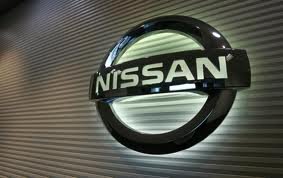At a press conference during this year's Frankfurt Motor Show, the head of the Renault-Nissan Alliance said, "No matter how fast the technology develops, the autonomous cars are very dependent on the regulation." Basically Ghosn is saying that Nissan will be ready, but the laws allowing hands-free driving might not be so prompt.
"You can build a lot of autonomy, but if the consumer or the driver cannot enjoy it because he still has to have his hands on the wheel, he still has to have his eyes on the road, it just puts cost in the car without the benefit," said Ghosn. The overall tone of Ghosn's comments was that Nissan is ready for autonomous driving, but without clear laws there could be no point in offering the technology to consumers.
Ghosn also clarified what autonomous driving means in Nissan terms, clarifying a statement last year where he said a consumer product is still a long way off. The company's three-step plan begins next year, "where you can be on the highway as long as you don't change lanes and you can be in autonomous mode." Then in 2018, these systems will be able to change lanes without human intervention. For the final step in 2020, "We're going to have cars capable in the city and on the highway to make more complicated operations [in an] autonomous way," said Ghosn.
"That's why I think when you talk about autonomous cars, we have to be much more specific about what kind of autonomy are we talking about... but we maintain our forecast that is going to come in different waves, and we define our waves by the functionality of autonomy in our cars [in] '16, '18, '20."
That said, don't skip your driver's license renewal five years from now. According to Ghosn, you won't see a Nissan without a steering wheel. That's both Nissan's goal, and the company's way around the lack of regulation on driverless cars.
"Frankly, a car without a driver is not our priority... There is a driver, and we are putting some functions into the car, allowing the driver to drive when they want, and to stop driving when they want... These are the same pieces of technology, which in addition to others, can lead you to the car without the driver. While we are less bullish on the car without the driver than maybe the other [automakers], we think that the regulation and the laws around the car without the driver are particularly tough."
A car that doesn't need a driver, according to Ghosn, is "a byproduct in developing autonomous driving." He believes that autonomous driving - where driver assistance can take on greater levels of control - allows automakers to bring people to the brand and make driving more pleasant.
Amid all the discussion of autonomous driving, whether a driverless car from Google or more incremental steps like those described by Ghosn, government regulations are often ignored in the big picture. Ghosn's comments highlight that the safe, self-driving future automakers are promoting lies more in the hands of legislators than engineers.
Nouvelles connexes



